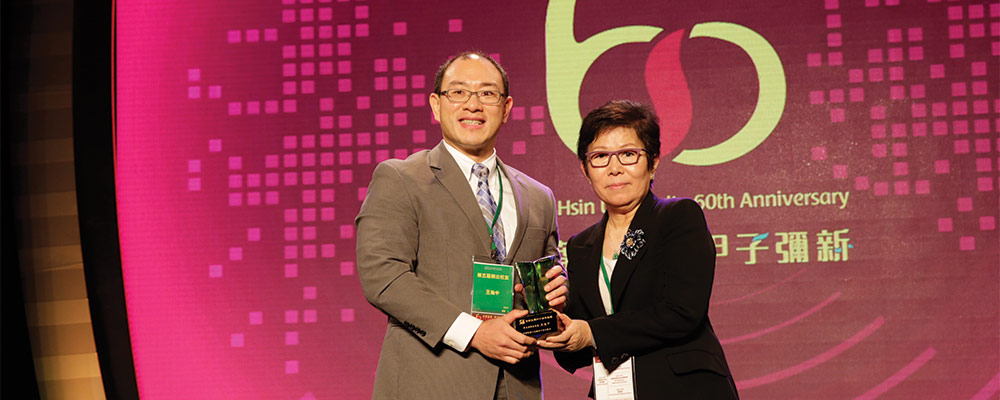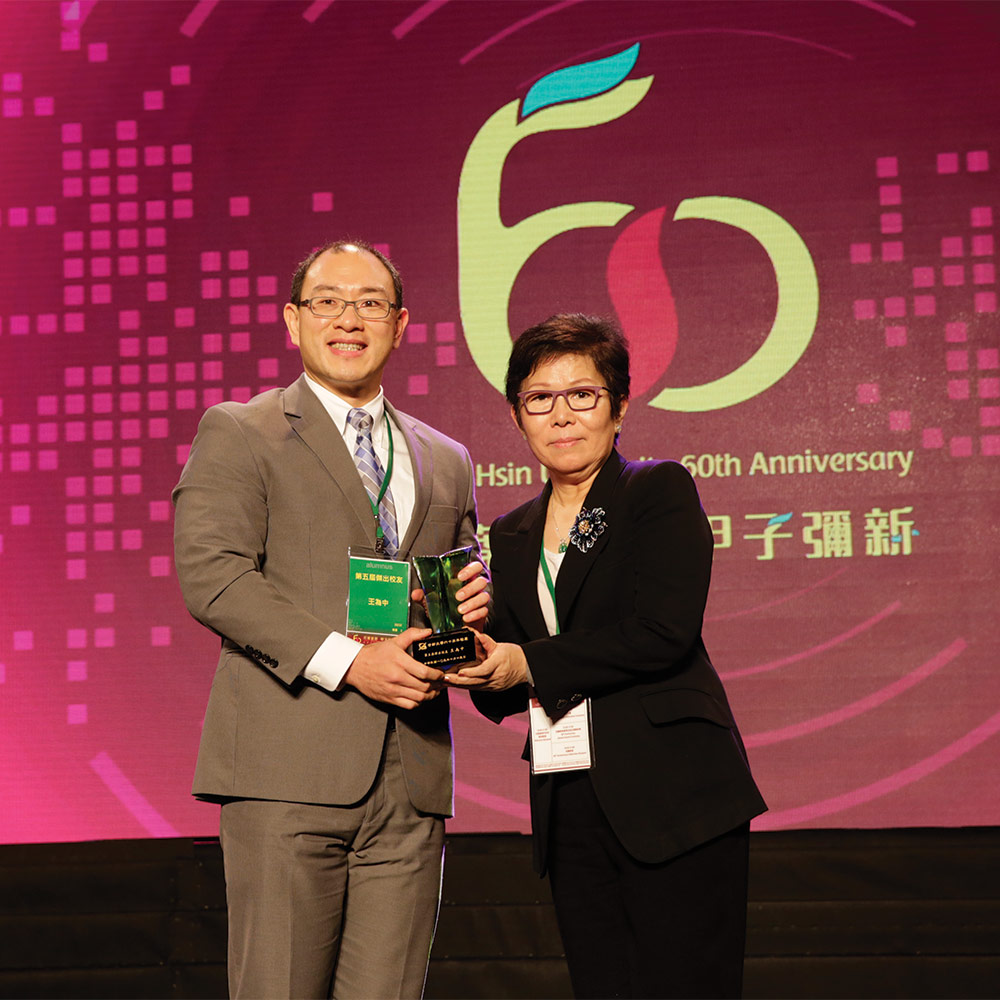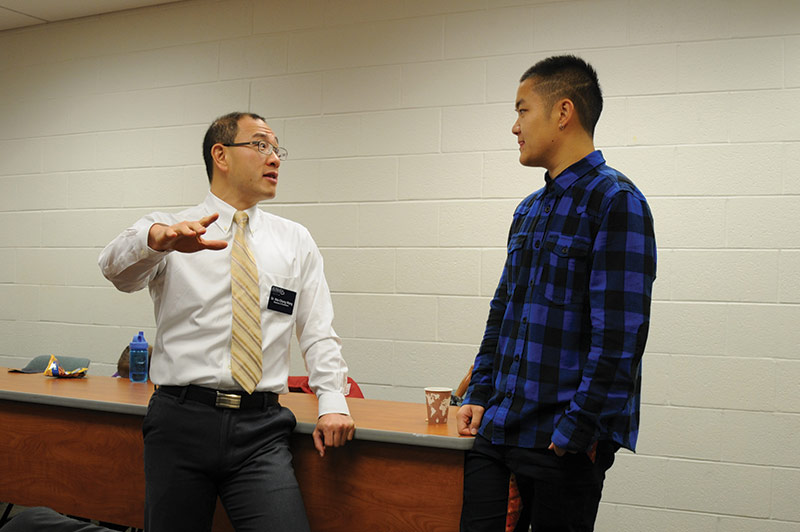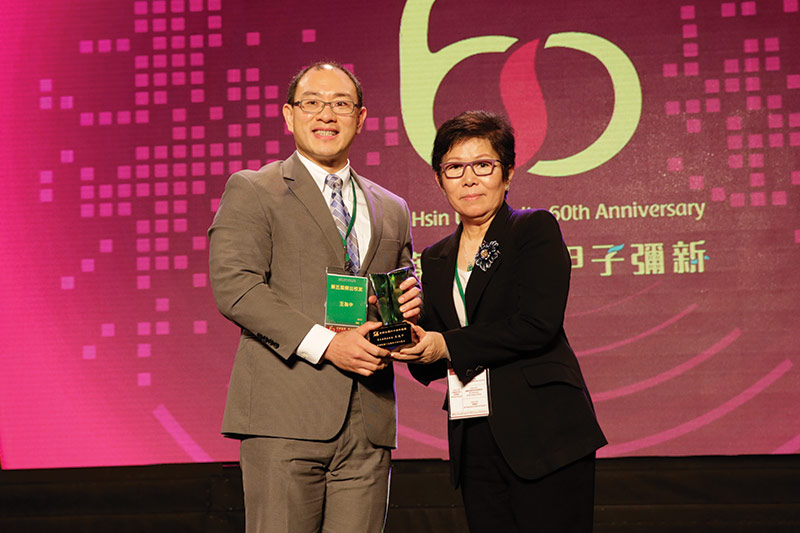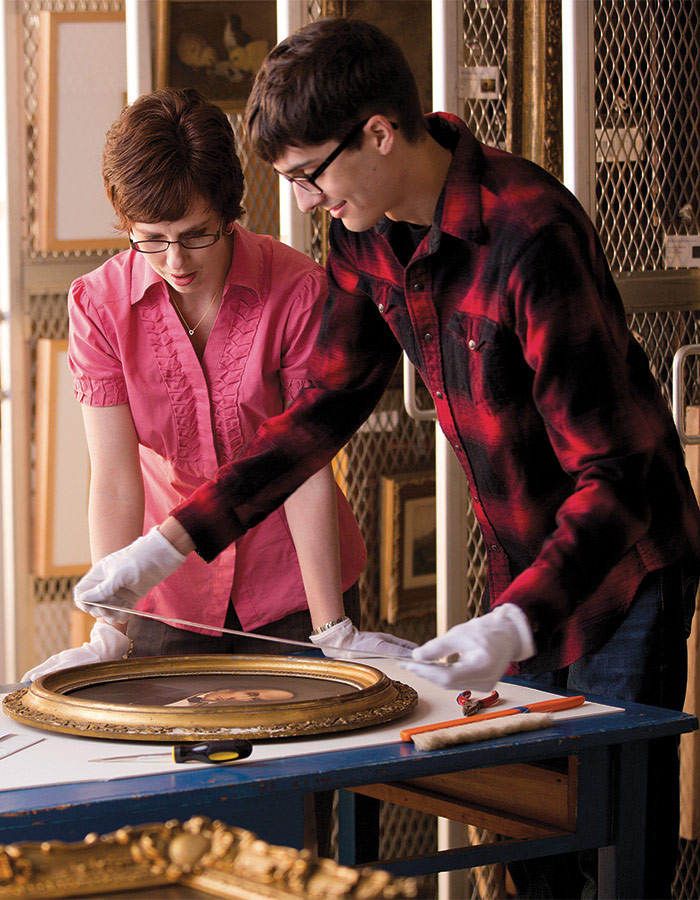Soon, his colleagues began stopping by, asking why he kept his door open. He replied that he wanted his students to know he was in the office. They warned him that the department's dean expected all of the faculty to publish as many papers as they could. The colleagues recommended that he keep his office door shut at all times. Maybe dim the lights, too.
"I spent the next two years staring into my computer monitor writing article after article," Wei-Chung says, his face showing relief at not having to perform such onerous duties anymore.
Although Wei-Chung's road from that lonely, resounding university office to Juniata was a circuitous one, his personal journey and academic story begins much earlier, in a much more regimented culture.
Wei-Chung is one of two sons born to a father who was an engineer for the China Steel Corporation and a mother who worked in international trade and then, when she wanted to slow down, started working in the insurance industry. The family lived in Kaohsiung City, the second-largest city in Taiwan. Wei-Chung remembers his father, who supervised the large furnaces used to make steel, having to notify seemingly dozens of people of his whereabouts in case something went wrong. His mother preferred being busy—always looking for something to do.
"I am much more like my mother," Wei-Chung laughs, "I like having things to do."
That type of personality served the young man well as he grew up in an educational system where freedom of choice was sometimes curtailed—or maybe nonexistent. All students who expect to go to college take an extensive examination and whatever university they attend is determined by their performance on the exam.
"You listed the schools you would like to attend and then listed the careers you were most interested in," Wei-Chung recalls. "Depending on your scores, you could go into what you liked." In other words, the lower Taiwanese students scored on a test, the less likely they were to attend a great school or study something they loved.
"I loved economics and I was lucky—I got to study economics and attend a very good school, Shih-Hsin University in Taipei," he says.
Wei-Chung recalls the very competitive atmosphere of Taiwanese higher education as highly stressful. For example, if students didn't like their major it was extraordinarily difficult to transfer. "The only way to do it was to have a really high GPA, which is completely contradictory!" he says.
Wei-Chung did not see many contradictions in the field of economics. In fact he believes he was attracted by the logic of how human behavior affects the global marketplace. By the time his undergraduate career was completed, Wei-Chung knew two things: He wanted to earn a doctorate and he wanted to do it in the United States. "All our textbooks in college were written by Western authors, many from the United States," he explains.
Because his area of interest was labor economics, Wei-Chung applied to several large state universities. His target was Iowa State, known for its four economics research centers and huge faculty. Wei-Chung received a scholarship to attend but the university withdrew it at the eleventh hour. Wei-Chung was devastated—but not for long.
"I had never been to the United States and knew nothing about geographic location," he says. So, when the University of California-Irvine accepted the young economist, he decided to go to Southern California. "I Googled Ames, Iowa, and Los Angeles and said 'Holy Moley, I'm glad I didn't go to Ames!'"
Sooner than you can recite the lyrics to "California Dreamin'," Wei-Chung was as deeply invested in the California lifestyle as Brian Wilson or Katy Perry. His first year was challenging as he bulled through coursework and improved his English. During his time there he met a business student at Cal State Long Beach, Kim Liao. The couple met at a party where they played mahjong, a Chinese gambling game similar to rummy that enjoyed a brief U.S. craze of popularity in the 1920s.
During their courtship Kim was accepted into the MBA program at Cal State-Fullerton and Wei-Chung was informed his doctoral research was so advanced he could earn his Ph.D. early. He was offered a job at National Chung-Hsing University, noted above for its "closed-door policy," and Wei-Chung racked up frequent flyer miles as he flew to the United States nine times over two years. The last time, Kim flew to Taiwan and the couple were married in 2007.
"Two years in, I realized working at a national university was not what I was looking for, so I began looking into consulting," he says. He returned to the Los Angeles area and began working for a Big Four accounting firm, helping multinational companies address transfer pricing issues.
"I thought I had my dream job," Wei-Chung says. "I lived close to Anaheim, where I could see the Angels play baseball. It's a great cultural city. We bought a house. My first son was born there. I told Kim 'We are going to stay here forever.'"
Wei-Chung loved the economic parts of his new career and loved the financial cushion the job provided his family. But, inevitably, the demands of the job kept piling up and it seemed he never got to go to any Angels games and they never got to try many of L.A.'s numerous amenities. He was tethered to his phone in case clients needed him.
"I looked up at all of my supervisors and realized they were all either single or divorced," he says. "Then one of my former graduate students, who had told me to stay in academia just before I started my consulting career, died suddenly of a heart attack at age 42. I thought life is just too short not to do something you really love."
Turns out that Wei-Chung really loved teaching and when he applied to Juniata's ad in the Chronicle of Higher Education, he didn't even tell his wife until he was in the finalist pool. "She told me 'You go check it out, but I'm never going to let you take that job' and I was a bit worried," says Wei-Chung, who realized that a brightly lit door to a happy life was swinging open during the interviews.
"When they called to offer me a job I literally shed a tear, because I was able to reclaim my life," he adds.
Since then, Wei-Chung has brought his zeal to many elements of work at Juniata. In addition to teaching classes, he is the College's director of global program development and takes students on two different short-term study abroad trips to Taiwan and China. He also works for Kdan Mobile Software, as vice president of global marketing. A handful of students have done internships with the company and Wei-Chung just hired his first Juniata graduate, Amanda Short '17, a finance POE who wanted to explore marketing as a career. She came into Wei-Chung's office to ask his advice and ended up getting a job in Taiwan.
Deeply invested in his many jobs and the Huntingdon community, Wei-Chung treasures his relationships with students and faculty colleagues. "I remember thinking as Brad Andrew was driving us around during my interview that this is a great place if what he's telling me is even 50 percent true," he says. "I never would have thought this of any place I've worked but 100 percent of what Brad was telling me turned out to be true. I have a great life."
"When they called to offer me a job I literally shed a tear, because I was able to reclaim my life."Wei-Chung Wang, Associate Professor of Business & Economics and Director of Global Program Development
